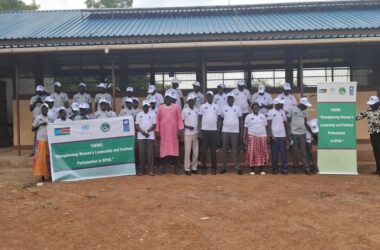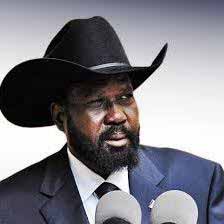By Bida Elly David
National minister of finance has sounded alarm of “no hope” to pay salaries due to poor revenue generation from oil and non-oil sectors.
Engineer Awow Daniel Chuang made the statement yesterday at Parliament, during scrutiny of President Salva Kiir’s speech made at the opening of the assembly.
About 8 months now, since government employees, with their families have been battling the on-going economic crisis in the country, without pay.
However, minister Awow stated that delays in salaries are caused by the crisis in Sudan, which impacted oil production and transportation to the international market.
The minister didn’t specify when and how, salaries for civil servants and the army would be released, but he only said there was no money.
“South Sudan’s revenue authority has limited capacity; they collect revenues only from Nimule and Juba; there is nothing from the states,” he said.
He noted that there is a problem with collecting taxes from the states as the revenue authority is unable to execute it due to the laws.
“If we assume that we collect around 25 or 35 billion SSP in only Nimule and Juba, it is a big challenge for us to have salaries; we should also depend on NRA,” he stressed.
The financial minister stated that the salary allocation is around SSP 85 billion, exceeding what is collected from customs duties.
“What we are collecting is around 25 or 30 billion; for you to accumulate this, you need at least three or four months to get a one-month salary. If you make NRA function in other states, collection will be double to cover salaries,” he emphasized.
Awow noted that the only source of income today is the non-oil revenues being collected by the South Sudan Revenue Authority. Adding the Nile blend and Dar blend crude oil, which contribute more than 70% of the government revenues, is not there anymore.
“What we are doing right now is to stabilize the market; it has gone very high with the prices of food commodities and the exchange rate, and whatever little we get out of these, it will be used for paying salaries,” he stated.
He admitted that they are now faced with a lot of challenges in the ministry of finance because of the oil export disruption.
South Sudan initially used to produce oil in different fields, with 70% coming from the Upper Nile and the rest from the Ruweng administrative area and Unity State.
“The production is only from Blocks 12, 14, and 58, which means there is only around 30% to 35% of the oil that is flowing,” Awow decried. “With the new challenges in Sudan, we have been struggling for the last two weeks to put things together.”
The minister further said that apart from the funding salaries, South Sudan still struggles to pay Sudan with accumulated arrears as production shares.
Rt. Hon. Jemma Nunu Kumba, the assembly speaker, slammed the minister’s excuses, terming them a defense mechanism.
She urged Minister Awow to immediately work towards addressing the matter with the cabinet as soon as possible.
“The issue of salaries needs to be addressed because civil servants are suffering; everything these days is resonating around money,” she urged.
Recently, the minister of finance had promised the payment of one-month salaries to civil servants and the organized forces, but the promise still hangs in balance.



